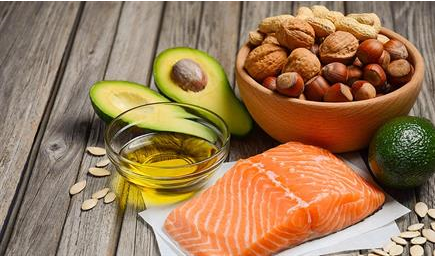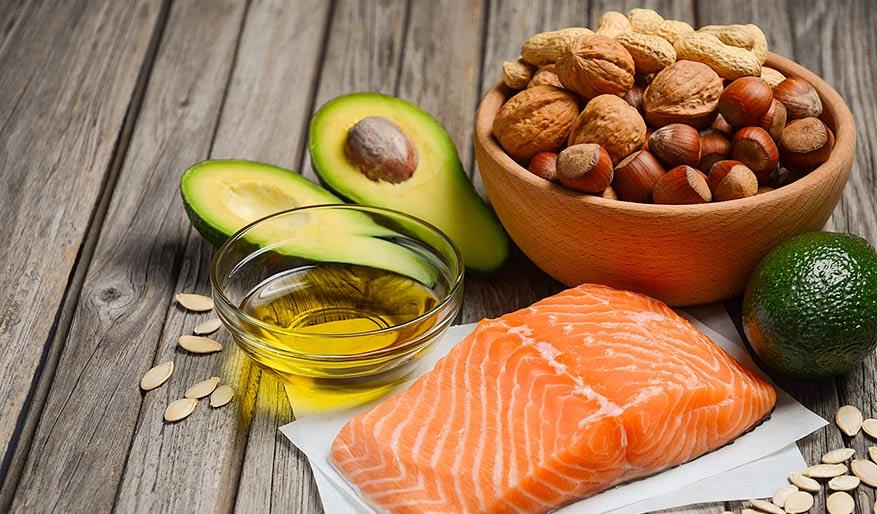The ketogenic, or keto, diet has become one of the most talked about, and tried, diets in recent years. What’s behind all the interest in this diet? Probably the fact that it switches up typical diet rules by making fat the component around which meals are built.
Here are answers to five key questions about this diet plan, including who should and shouldn’t consider the diet.
- What is the keto diet?In short, the keto diet is a high-fat, low carbohydrate diet. Meals generally comprise of between 70-80% fat, 15-25% protein, and around 5-10% carbohydrate. In the most extreme version of the diet, the fat content is 90%, protein 8% and carbohydrate just 2%.
- How does it work?The basic idea behind the keto diet is to switch the body from a carbohydrate metabolism to a fat metabolism, in doing so, the body shifts from using glucose produced by carbohydrates as energy, to using ketones produced by fat breakdown as energy.In diets high in carbohydrates and protein, the body produces higher levels of insulin and stores more fat. By changing from a carb to a fat-based diet, the metabolic process changes: insulin levels no longer increase when you eat and you stop storing fat, and, as carbohydrate reserves are depleted, the liver starts producing ketones to meet your energy needs. Typically, it takes a few days of following the diet for the metabolic shift to ‘ketosis’ to occur, when your metabolism should speed up.
- Are there other health benefits to the keto diet?While research around the diet is still in its early stages, initial studies have found that the keto diet may be beneficial to people with type 2 diabetes, or who are morbidly obese. For people with type 2 diabetes, the diet has been found to help in stabilizing blood sugar and insulin levels, and can reduce their dependency on insulin and other forms of medication. For morbidly obese people, kick starting a faster metabolism can help with weight loss. Some studies have also suggested that following a keto diet could be beneficial to sufferers of neurological conditions including epilepsy and Alzheimer’s disease.
- Are there any health risks?As with any change in diet, particularly if it’s a radical one, it can be difficult to predict how your body will respond. Recent studies have indicated that some people may experience less desirable side effects when on the keto diet. These may include muscle cramps, changes in bowel habits, bad breath and loss of energy. Equally, with research in its early days, the long-term impact of the keto diet is still unknown. However, those with kidney or liver problems, or who are underweight or lose weight easily, may find the keto diet isn’t suitable for them, and should seek medical advice before trying it.
- What are the food dos and don’ts of the diet?As a fats-led diet, it’s important to understand that there are ‘good fats’ - unsaturated and monounsaturated fats, and ‘bad fats’, namely trans fats and saturated fat. A keto diet plan needs to be built around these good fats, found in foods like avocadoes, eggs, fatty fish, and certain types of unsaturated oils like olive oil, nuts and seeds. You should focus on consuming high quality, fresh and unprocessed foods and beverages – the ‘bad fats’ can typically be found in processed and convenience foods.
Foods to develop meals around include:
- Dairy products: Butter, cream, cheese, plain yoghurt - opt for high-fat varieties
- Eggs
- Oils: Extra virgin olive oil, coconut, avocado
- Avocadoes
- Nuts: Almonds, walnuts, hazelnuts, pecans
- Seeds: Chia, sesame, pumpkin
- Fish & seafood: Salmon, tuna, mackerel, clams, mussels, squid
- Red meat and poultry like chicken and turkey. Fattier cuts of these meats are also allowed in limited amounts.
- Low starch / low carb vegetables: Tomatoes, onions, peppers, cauliflower, mushrooms and most green vegetables
- Berries: Limited amounts of raspberries, blueberries, blackberries, strawberries
Foods to avoid or limit
- Fruits: Avoid eating fruits with the exception of berries
- Root and tuber vegetables: Potatoes, carrots, parsnips
- Beans and legumes: Peas, kidneys beans, black beans, chickpeas, lentils
- Grain products: Bread, cereal, rice, pasta
- Sugary, sweet or sweetened foods and drinks: Candies, cake, ice cream, soda, juices, sweeteners, sauces, dressings
- Processed or refined oils: Vegetable, sunflower, sesame, corn
- Low fat or diet products: These products tend to be processed
Before considering the keto diet, or undertaking any drastic changes to your eating habits, it’s important to speak to your doctor or nutritionist to check that your chosen diet is suitable for you and your health needs and goals.

